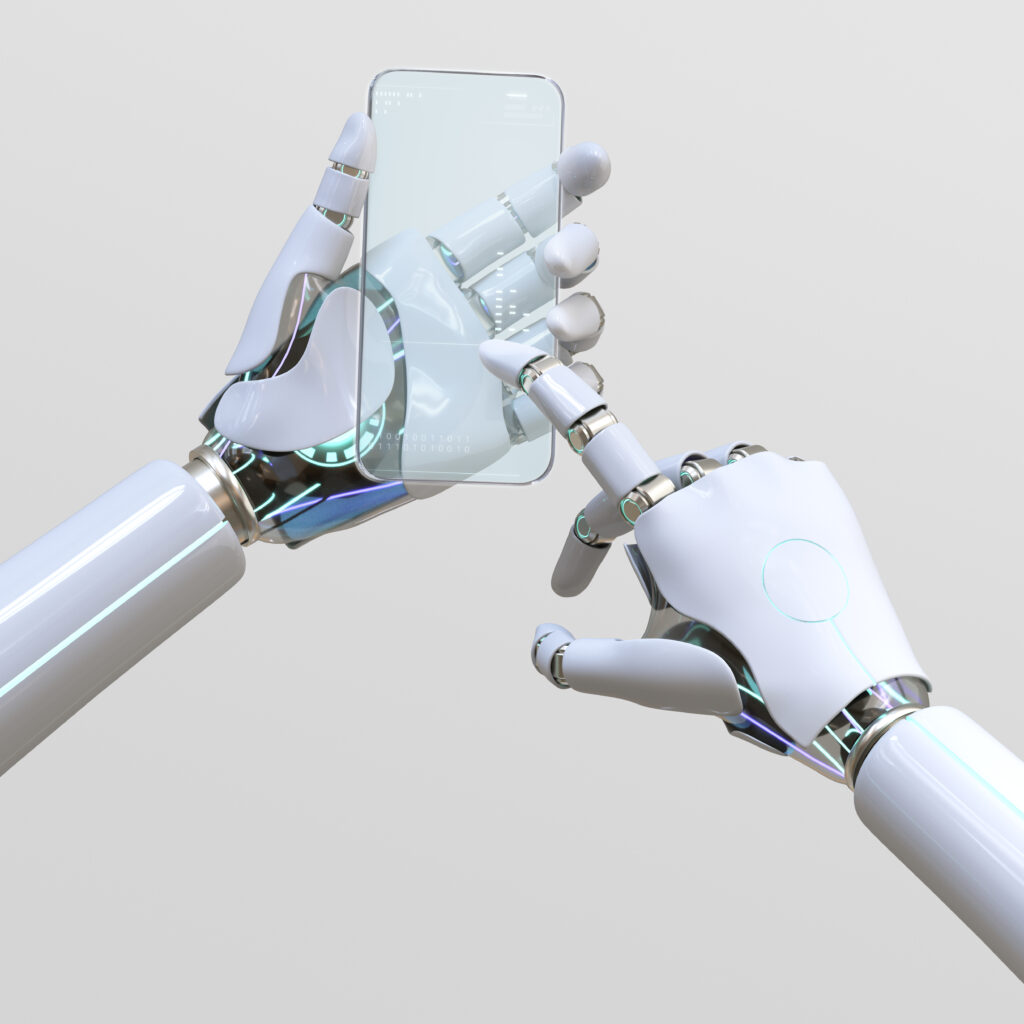
Introduction: The Rise of AI in Smartphones
In today’s fast-paced digital era, AI in smartphones is no longer a futuristic concept—it’s our reality. From personalized experiences to smarter automation, artificial intelligence in smartphones is redefining how we interact with our mobile devices. This blog explores the use of AI in smartphones, its benefits, top applications, and what the future holds for this innovative technology.
What is AI in Smartphones?
AI in smartphones refers to the integration of artificial intelligence technologies like machine learning, natural language processing, and computer vision into mobile devices. These AI-driven features allow phones to learn from user behavior, adapt to preferences, and execute intelligent tasks without manual input.
Top Uses of AI in Smartphones
1. AI-Powered Photography
One of the most popular uses of AI in smartphones is in camera functionality. Phones now come with AI scene detection, auto-enhancement, and portrait mode features that identify lighting, objects, and background for perfect shots. AI photography enables even amateur users to capture professional-grade images.
2. Voice Recognition & Smart Assistants
Voice assistants like Siri, Google Assistant, and Alexa rely on AI in smartphones to understand and respond to voice commands. These assistants can send messages, set reminders, search the web, and even control smart home devices, all through natural language processing.
3. Smart Battery Management
Through AI in smartphones, your device learns your daily usage habits. This helps optimize battery life by limiting power to rarely used apps and prioritizing those used frequently, leading to longer battery life and energy efficiency.
4. Facial Recognition & Biometric Security
AI in smartphones plays a crucial role in enhancing security. Features like facial recognition and fingerprint scanning are now more accurate and faster, thanks to AI algorithms that adapt and improve over time.
5. Predictive Text & Smart Replies
Typing and messaging are now faster with AI in smartphones offering predictive text, auto-correction, and smart replies based on your communication style. This makes conversations quicker and more intuitive.
6. AI in Mobile Gaming
Modern mobile games use AI in smartphones to adjust difficulty levels, enhance NPC behavior, and personalize gaming experiences, delivering more dynamic and challenging gameplay.
7. Real-Time Language Translation
Apps powered by AI in smartphones now offer real-time translation, allowing users to communicate across languages instantly, whether through text, voice, or even camera input.
Additional Benefits of AI in Smartphones
- Personalized Recommendations: From shopping to streaming, AI in smartphones curates content based on your preferences.
- Health Tracking: With built-in AI sensors, smartphones monitor heart rate, sleep patterns, and suggest wellness improvements.
- Photo Organization: AI in smartphones can categorize images by location, people, or events for easier access.
Top Brands Using AI in Smartphones (2025)
- Apple (iPhone 16 Pro Max) – Known for AI-enhanced photography and on-device Siri upgrades.
- Samsung (Galaxy S25 Ultra) – Features AI multitasking, battery management, and Bixby improvements.
- Google (Pixel 9) – Leading in AI voice recognition and real-time translation.
- OnePlus (13T) – Offers AI scene detection and system optimizations.
Challenges of AI in Smartphones
While AI in smartphones offers numerous benefits, it also presents challenges:
- Privacy Concerns: Continuous data tracking may raise concerns about user privacy.
- Battery Consumption: Some AI processes can drain battery faster if not optimized.
- Dependence on Connectivity: Many AI features need constant internet access to function efficiently.
Future of AI in Smartphones
Looking ahead, the future of AI in smartphones is incredibly promising. We can expect:
- AI co-processors to handle tasks independently
- Hyper-personalized user interfaces
- Emotion recognition for even smarter interactions
- Deeper integration with IoT and smart homes
FAQs About AI in Smartphones
Q1: What is AI in smartphones?
AI in smartphones is the use of artificial intelligence technologies like machine learning and NLP to make phones smarter and more responsive.
Q2: How is AI used in smartphones?
The use of AI in smartphones includes camera enhancements, voice assistants, biometric security, app optimization, and more.
Q3: Is AI in smartphones safe?
Yes, when developed responsibly, AI in smartphones enhances user safety and data protection, especially with on-device processing.
Q4: Which phone uses AI the best?
As of 2025, Google Pixel 9, Samsung Galaxy S25, and iPhone 16 Pro Max lead in delivering advanced AI smartphone features.
Q5: Can AI work offline in smartphones?
Yes. Some phones use on-device AI processing, which allows certain AI features to function even without internet.
Conclusion: Embracing the AI Revolution in Smartphones
In conclusion, AI in smartphones is no longer a luxury—it’s a core part of modern mobile technology. With applications in photography, security, battery management, and personalization, the use of AI in smartphones has dramatically improved the user experience. As this technology continues to evolve, expect even smarter, faster, and more intuitive devices that understand you better than ever before.
Whether you’re a casual user or a tech enthusiast, it’s time to embrace the power of AI in smartphones and step into the future of intelligent mobile computing. Pixel 9.




